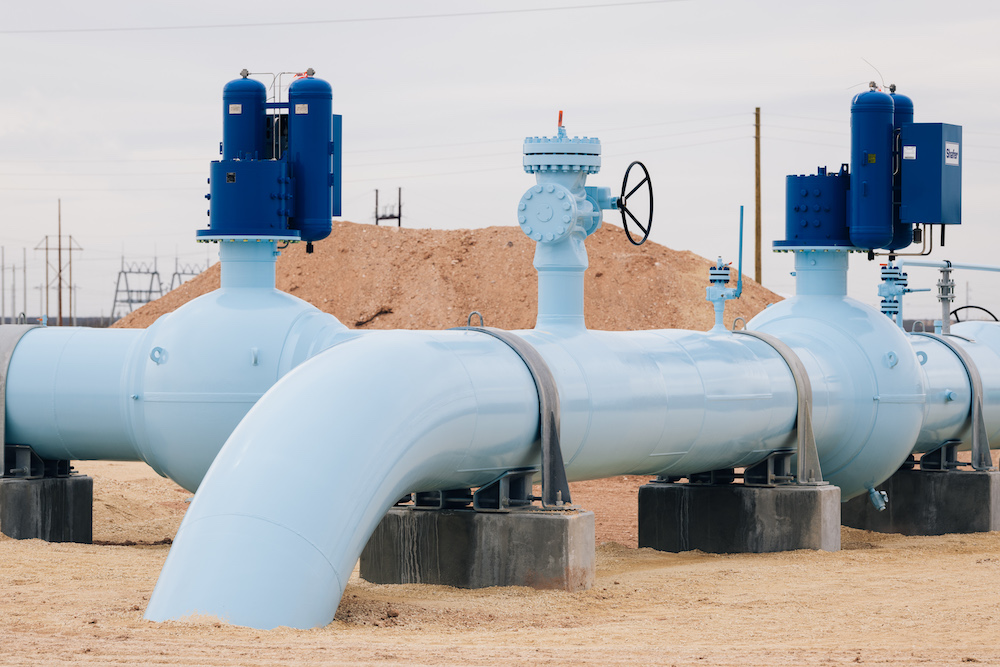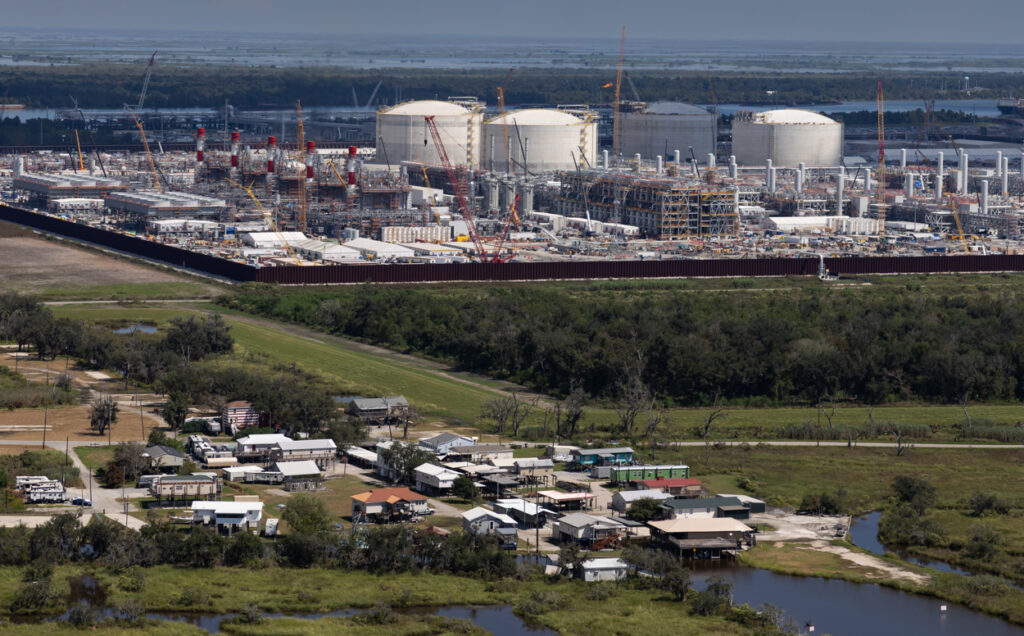At a time of overlapping crises, putting fossil fuel assets into public ownership offers a way to slash carbon emissions and pave the way for a just transition for oil and gas workers who find themselves without a job, according to a new report.
Fracking was a loss-making enterprise before the global pandemic — more than 200 North American oil and gas companies have gone bankrupt since 2015 — but with oil prices crashing below $20 per barrel, many more companies will go under.
With each passing week, the U.S. oil and gas industry and its allies in Washington have used the COVID-19 pandemic and the unfolding economic crisis to gut important environmental protections and lobby for handouts.
Each newfangled idea is more brazen than the previous. On April 16, for instance, the Trump administration finalized rules to allow more toxic mercury emissions from coal-fired power plants. Drilled News has a running tally of all the different ways the industry is trying to capitalize off of the coronavirus crisis, a list that has totaled about 60 different environmental rollback measures as of mid-April.
But one of the more outlandish ideas the administration has conjured up is to pay fracking companies to do nothing. Bloomberg reported that the Department of Energy was considering a plan to pay drillers to cut back on drilling, a sort of debauched version of “keep it in the ground.”
“That is actually an interesting step forward” in the sense that the government sets up a framework to keep oil and gas from being extracted in the first place, Johanna Bozuwa, co-manager of the Climate and Energy Program at the Democracy Collaborative, told DeSmog in an interview. She authored a new report called “The Case for Public Ownership of the Fossil Fuel Industry,” which was published jointly with Oil Change International.
The oil industry is facing “cascading crises,” Bozuwa said, and fossil fuel executives are turning to Washington for bailouts. Instead, “what we need is to ensure that what comes alongside that is a just transition, and a commitment to actual climate success and investment in people,” she added, and “not one where we come out with more consolidated oil and gas companies.”
Putting Oil and Gas Assets Under Public Ownership
The years long decline of the coal industry is instructive. Neither state governments in Appalachia nor the federal government have helped coal regions create new economies to replace shuttered coal mines. The results have not been pretty.
The recent history of coal is “one of zombies companies going in and out of bankruptcy and using that in a very pernicious way to continue on thinner margins and less protections” for workers and the environment, Bozuwa said. Companies declare bankruptcy, shed healthcare and pension obligations, for example, and then reconstitute themselves. Workers end up bearing the brunt of the industry’s decline.
Bozuwa pointed to the case of Blackjewel LLC, a West Virginia-based coal company that went bankrupt in 2019, but not before its chief executive ensured he got paid. Laid off workers in Harlan County, Kentucky, blockaded rail tracks in front of a Blackjewel mine for two months, demanding back pay.
When Blackjewel declared bankruptcy in July, it left miners in Kentucky without pay. To protest, miners gathered on the railroad tracks to block one of the company’s assets: a trainload of coal worth over a million dollars. Weeks later, they haven’t left. https://t.co/58tGa31oDH
— The New York Times (@nytimes) August 19, 2019
A similar process could play out in the oil and gas sector as bankruptcies begin to multiply. The Denver-based Whiting Petroleum declared bankruptcy on April 1, but just days before the Chapter 11 filing, the company’s board approved $14.6 million in bonuses for top executives.
Around 70 oil and gas companies are at risk of bankruptcy this year if the oil price benchmark WTI averages $30 per barrel, according to energy research consultants Rystad Energy. If oil stays stuck at $30 into next year, the bankruptcy total could rise to 150 to 200 companies. “If the cascade of oil and gas reorganizations in coming months is handled incorrectly, there could be a mass transfer of risks to the public, while the fossil fuel industry and its executives could emerge with little penalty,” Bozuwa warned in the Democracy Collaborative report.
Instead of such a chaotic demise, public ownership of fossil fuel assets could help communities prepare for something else. Bozuwa proposes a Federal Just Transition Agency, which would be tasked with unwinding oil and gas companies over time, while also injecting money into communities that hosted extractive industries, with decisions made at the local level, putting frontline communities at the forefront of new investments.
Her report identifies several avenues for public ownership. One idea is that the bailouts under discussion could come with strings attached, including the government taking equity stakes in companies themselves. Oil companies “could elect to not take that money, and walk away. Others may say yes,” Bozuwa said.
Another idea would be to place a bankrupt company in government receivership. “We’ve done this in the past,” she added. “General Motors is an example of how the U.S. government has used bankruptcy as a way to help reorient a company, take an active stake in it, and turn the company around in some way.”
The government could also use eminent domain to acquire oil and gas assets for just compensation.
Once under public control, companies could be wound down with climate targets in mind, while simultaneously the government provides capital for new investments in affected communities, compensating workers and preparing them for new industries.
The notion of public ownership still seems remote politically, but has new salience in the face of multiple, layered crises unfolding at the same time — a global pandemic, economic meltdown, and a worsening climate crisis. “For the 1.6 million workers currently in the oil and gas sector, government leadership of the industry might be the only way they avoid crashing out of the carbon economy and facing mass unemployment during the (likely) recession,” Kate Aronoff wrote in The New Republic in March. “Nationalization might be the best way out.”
If Trump can order the DOE to keep oil in the ground to protect oil industry profits, Biden could do it to prevent the climate catastrophe, right?
Checking for a friend. https://t.co/xaZPYIhmcE
— Jamie Henn (@jamieclimate) April 15, 2020
More Business as Usual
Even as the world struggles with a pandemic and employment crisis, climate-fueled disasters loom. The 2020 hurricane season is expected to be especially active. A new study finds that much of the western United States is suffering from a megadrought. Another recent study concludes that the collapse of entire animal species could occur more abruptly than previously thought.
In the interim, the oil and gas industry is aiming to use the current downturn to ram through more deregulation and potentially even corporate bailouts. Nevertheless, more oil and gas bankruptcies are all but certain. On the one hand, the oil majors are betting that they can consolidate their position among the wreckage of the failed fracking industry and strengthen their position.
But taking public ownership of failed fracking assets offers an alternative, Johanna Bozuwa of the Democracy Collaborative told DeSmog. “This is a really key and important time to ensure those bailouts are not used to extend the lives of these companies, but instead are able to potentially take them into public ownership and then ensure that they aren’t shedding worker commitments or community commitments or environmental commitments,” she said.
Main image: Pipeline connection leading into the Brazos Comanche I cryogenic natural gas processing plant. Reeves County, Texas. Credit: Justin Hamel © 2020
Subscribe to our newsletter
Stay up to date with DeSmog news and alerts







